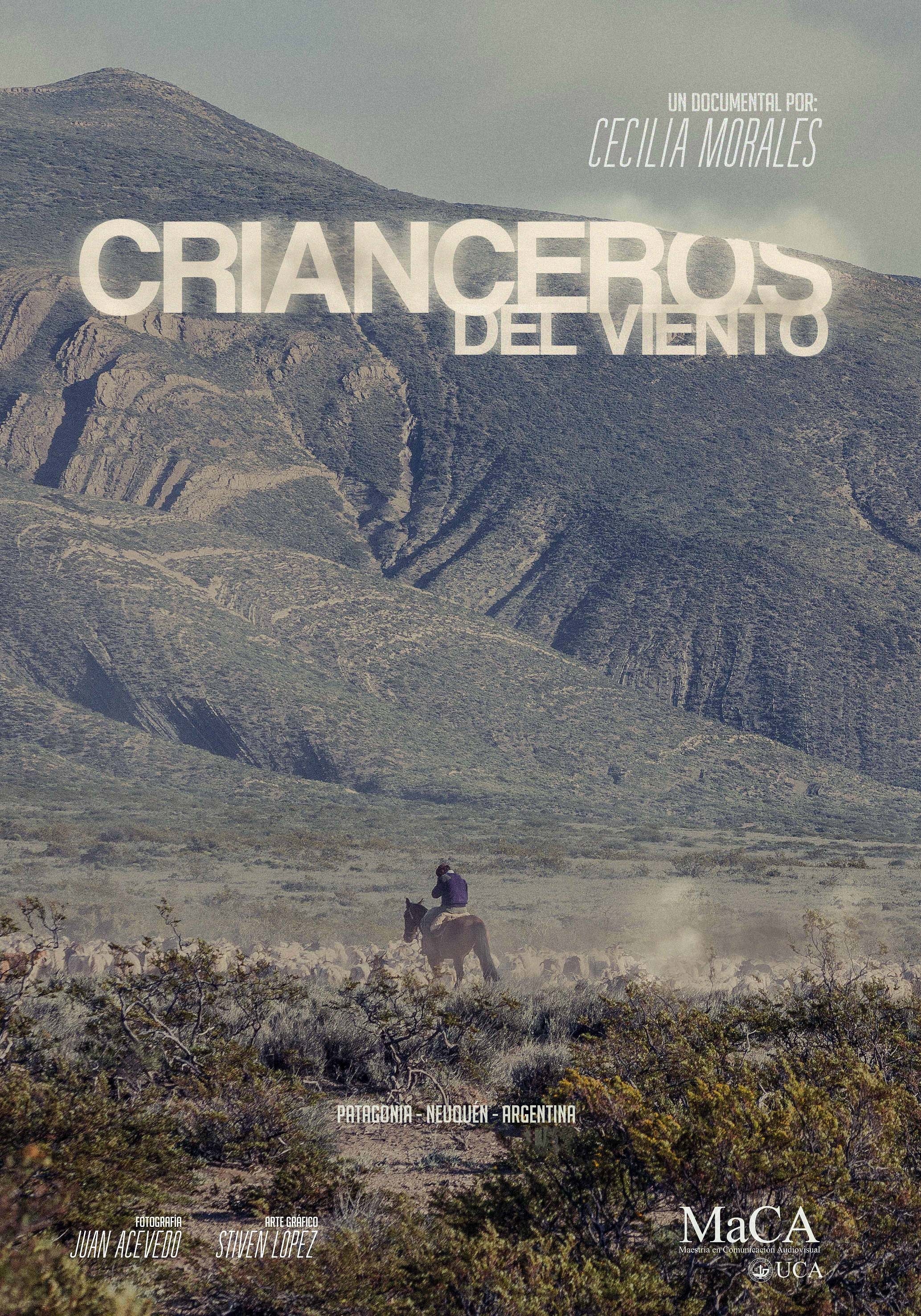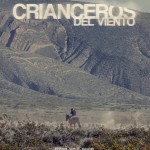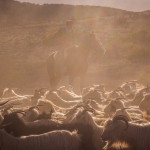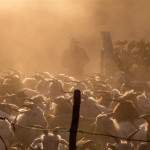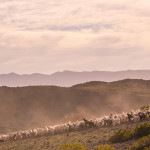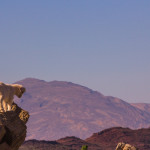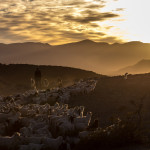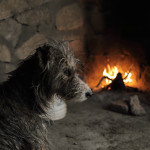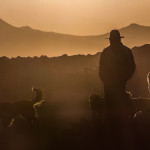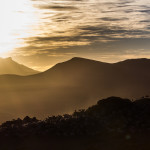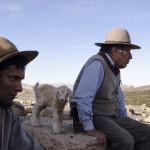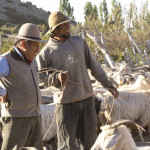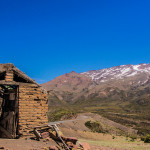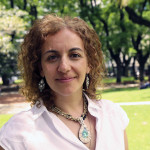Windherders
Technical Information / Información Técnica:
(2019) – 00:50:00 – Argentina – HD – Colour – Documentary – Stereo – 23,97 fps – 16/9 – Neuquén – Environmental, Nature, work
Synopsis / Sinopsis:
Se acerca el verano y en la estepa patagónica, el agua y el pasto son escasos. Desde el solitario paraje Curaco en el norte de Neuquén, una familia de pequeños productores caprinos –los Alarcón- sigue las huellas históricas de la trashumancia camino a la Cordillera del Viento. Deben peregrinar cientos de kilómetros para llegar a la veranada para alimentar la nueva crianza de “chivitos”. Don Atilio Alarcón, cantautor y criancero, reflexiona acerca de sus raíces y de este oficio en estrecha relación con el terruño y los ciclos de la naturaleza. Una forma de vida que se extingue y erosiona como la insistente fuerza del viento envuelve y desgrana la tierra. O un legado ancestral capaz de rebrotar en las generaciones herederas.
En la estepa patagónica, el agua y el pasto son escasos. Desde el paraje Curaco en Neuquén, una familia de pequeños productores caprinos –los Alarcón- sigue las huellas históricas de la trashumancia camino a la Cordillera del Viento. Peregrinan cientos de kms para llegar a la veranada y alimentar la nueva crianza. Don Atilio, cantautor y criancero, reflexiona acerca de sus raíces y de este oficio en estrecha relación con el terruño y los ciclos de la naturaleza. Una forma de vida que se extingue y erosiona, O un legado ancestral capaz de rebrotar en las generaciones herederas.
The summer is approaching and the water and the grass are scarce. A family of small caprine producers follows the historical tracks of transhumance on the way to Cordillera del Viento. They must go on a pilgrimage of hundreds of kilometers in order to get to the summer pasture in order to feed the new breeding of kids. Atilio Alarcón, singer-songwriter and goatherd, reflects on his own roots and those of this trade that is closely related to the land as well as nature’s cycles.
The summer is approaching and, in the Patagonian steppe, the water and the grass are scarce. From the deserted location of Curaco, in northern Neuquén, a family of small caprine producers -the Alarcons- follow the historical tracks of transhumance on the way to Cordillera del Viento. They must go on a pilgrimage of hundreds of kilometers in order to get to the summer pasture in order to feed the new breeding of kids. Don Atilio Alarcón, singer-songwriter and criancero (goatherd), reflects on his own roots and those of this trade that is closely related to the land as well as nature’s cycles. A way of life that is becoming extinct and erodes like the persistent force of the wind envelops and shells the soil. Or an ancestral legacy capable of resprouting in the inheriting generations.
Long Synopsis / Sinopsis Larga:
Se acerca el verano y en la estepa patagónica, el agua y el pasto son escasos. Desde el solitario paraje Curaco, una familia de pequeños productores caprinos –los Alarcón- deben peregrinar cientos de kilómetros para llegar a la veranada para alimentar la nueva crianza de “chivitos”. Una travesía que traza las huellas históricas de la trashumancia en la geografía del Norte de la Provincia del Neuquén. Un desafiante viaje que va más allá de trasponer el camino de montaña en la mítica Patagonia. Un documental de carácter etnobiográfico que nos invita a reflexionar a través del relato de Atilio Alarcón, cantautor y criancero, acerca de sus raíces y un oficio en estrecha relación con el terruño y los ciclos de la naturaleza. Testimonio de quien observa cómo se multiplican los cercos poniendo cada vez más trabas a su paso. Una lucha que no solo debe sobreponerse al frío y al riego de arrear al costado de la ruta, sino a la apropiación del territorio. Una tradición que el poder silencioso alambra, extingue y erosiona, como la insistente fuerza del viento envuelve y desgrana la tierra. O legado ancestral que busca rebrotar en sus generaciones herederas.
The summer is approaching and, in the Patagonian steppe, the water and the grass are scarce. From the deserted location of Curaco a family of small caprine producers -the Alarcóns- must go on a pilgrimage of hundreds of kilometers in order to get to the summer pasture in order to feed the new breeding of kids. A journey that follows the historical tracks of transhumance in the geography of the northern part of the Neuquén province. A challenging trip that goes beyond transposing the mountain path in the mythical Patagonia. An ethno-biographical documentary that invites us to reflect, through the words of singer-sonwriter and criancero (goatherd) Atilio Alarcón, on the his own roots and those of this trade that is closely related to the land as well as nature’s cycles. The testimony of someone who sees how fences multiply, filling the path with more and more obstacles. A struggle in which one doesn’t only have to deal with the cold and the risk of herding on the side of the road, but also the appropriation of the land. A tradition that the silent power fences, eradicates and erodes, like the persistent force of the wind envelops and shells the soil. Or an ancestral legacy capable of resprouting in the inheriting generations.
Director´s Biography / Biografía de la Directora:
Se recibió de Licenciada en Comunicación Social en la Facultad de Derecho y Ciencias Sociales de la Universidad Nacional del Comahue en 2011. En 2006 obtuvo el título de Técnica Universitaria en Comunicación Social con orientación en Medios Audiovisuales en la misma Universidad. Trabaja como comunicadora, guionista y contenidista. En 2013 comenzó la Maestría en Comunicación Audiovisual en la Universidad Católica Argentina. En ese marco y como cierre de esa etapa de especialización profesional, surgió el proyecto documental “Crianceros del Viento”, su primera película integral, como directora, productora y realizadora independiente. En su actividad laboral anterior, cuenta con diversas producciones televisivas, en los roles de productora, contenidista y guionista, en particular para ciclos de promoción del turismo y cultura de Argentina y de la provincia del Neuquén.
Cecilia Morales nació en Chos Malal, Neuquén. Es Lic. en Comunicación Social con Orientación en Medios Audiovisuales en la Universidad Nac. del Comahue. Trabaja como comunicadora, guionista y contenidista. “Crianceros del Viento” es la tesis de su Maestría en Comunicación Audiovisual cursada en la Universidad Católica Argentina.
Cecilia Carolina Morales was born in the locality of Chos Malal, Province of Nequén, Argentina, in 1974. She has a bachelor’s degree in Social Communication from the Law and Social Studies Department of the National University of Comahue, from which she graduated in 2011. In 2006, she obtained the degree of University Technician in Social Communication with Orientation in Audiovisual Media from that same university. She works as communicator, screenwriter and content specialist. In 2013, she started her Master’s in Audiovisual Communication at the Argentine Catholic University, in the Autonomous City of Buenos Aires. In that context, and as closure to that stage of professional specialization, the idea for the documentary project “Crianceros del Viento” came up. It is her first film as an independent filmmaker and producer. Her previous work includes several television productions, in the roles of producer, content specialist and writer, mainly for shows that promote tourism and culture in Argentina and the Province of Neuquén.
Director Statement / Declaraciones de la Directora:
Busqué compartir una historia de la vida real en los paisajes de la Cordillera neuquina; reflejar una faceta menos difundida de lo que estamos acostumbrados a ver de la Patagonia. Y encontré en Don Atilio Alarcón al criancero que podía expresar, con su relato y su poesía, una experiencia de vida singular desde aquel solitario rincón cordillerano… pero también, una vivencia capaz de hacerse eco en otras realidades de pueblos campesinos. Ser Criancero es un oficio con reminiscencias ancestrales, es trasladarse con unos pocos animales para el pastoreo…un trabajo que se hace en familia, en sintonía con la actividad para el auto-sustento. Es gente simple y sencilla pero de una gran sabiduría, que vive en comunión con la naturaleza y la realidad que les acontece como comunidad. Una historia que logra cautivar por el contraste de sus paisajes, pero a la vez conmueve por el relato profundo del hombre criancero. En mí, la pretensión fue honrar a esos “crianceros del viento” y su trabajo silencioso en condiciones muy difíciles; en particular, en ese peregrinar varios días en estrechos caminos hacia la veranada. A veces es sólo una huella, en otras callejones angostos o la ruta. Pero su mensaje con sentido humanitario logra trascendernos como realizadores y permite dar cuenta de la importancia del cine documental como medio para este fin. Somos eco de testimonios que quieren dar continuidad al oficio del criancero, a la producción de chivitos, de la que sienten orgullo y pertenencia, pero en el anhelo de un contexto menos indiferente, donde el progreso acompañe sin atropellar lo autóctono y sin despojar al campo de una oportunidad para manos jóvenes. El documental intenta dejar registro de los herederos de una tradición y oficio que aun hoy sustenta el trabajo, la economía y estilo de vida de muchas familias en el norte de la provincia del Neuquén. Zona por cierto de la que soy oriunda y donde la actividad me llamaba la atención desde chica, cada vez que veía a estos hombres montados a caballo pasar con su arreo de animales por los cerros y calles la localidad de Chos Malal.
I sought to share the real-life story of Neuquén’s mountain range; reflect a facet of the Patagonia we’re not used to seeing. And I found in Don Atilio Alarcón the criancero that could express, with his storytelling and his poetry, a unique life experience from that lonely mountain corner… but also, a life lesson capable of echoing in other realities of rural towns. Being a Criancero is a trade with ancestral reminiscences; it is all about moving with only a few animals for herding… a work done among family, in line with the activity for self-sustenance. They are simple, modest people, but also very wise, and live in communion with nature and the reality they face as a community. A story that becomes captivating due to the contrast of its landscapes and touching due to the deepness of the criancero’s story. As for myself, the intention was to honor these “crianceros of the wind” and their silent work under very difficult conditions; mainly that pilgrimage of days to the summer pasture. Sometimes it’s only a track; others, it’s narrow passages or the road. But their humanitarian message manages to go beyond ourselves as filmmakers and allows to show the importance of documentary film as a means to this end. We are the echo of testimonies that want to provide continuity to the criancero trade, to the production of kids, which makes them proud and gives them a sense of belonging, but wishing for a context that is less indifferent, where progress accompanies them without trampling on the indigenous and stripping the country of opportunities for young hands. The documentary tries to leave a record of the heirs of a tradition and a trade that, even today, provides work, sustenance and a lifestyle to many families in the northern part of the Neuquén Province. And by the way, that is the area I come from, and that activity caught my attention from a very young age every time I saw those men passing by with their horses and their herds on the mountains and the streets of the locality of Chos Malal.
Overview / Ficha Técnica:
– Screenplay / Guión: Cecilia Morales
– Director / Dirección: Cecilia Morales
– Produced by / Producido por: Cecilia Morales
– Cinematographer / Dirección de Fotografía: Juan David Acevedo Ríos
– Cameraman / Camarógrafos: Juan D. Acevedo Ríos, Stiven López Peláez, Cecilia Morales
– Art Director / Dirección de Arte: Stiven López Peláez
– Edditing / Montaje y Color: Ernesto Doldán
– Sound / Sonido: Stiven López Peláez, Cecilia Morales
– Sound Design / Diseño de Sonido: Gabriel Santamaria, Santiago Capriglione
– Music / Música: Tito Gutiérrez Gjurinovic y Lautaro Gutiérrez Calderón – Atilio Alarcón
– Festivals, Awards and Nominations / Festivales, Premios y Nominaciones:
– 18 BioSegura, Festival de Cine Mediambiente y Mundo Rural; 06/2019; Spain
– 9 NaturVision Film Festival; 07/2019; Germany
– 1 Tulum World Environment Film Festival; 07/2019; México
– 5 FECINEU, Festival Internacional de Cine Independiente (Best regional Film); 08/2019; Argentina
– 4 FCEE, Festival de Cine Etnográfico de Ecuador; 08/2019; Ecuador
– 9 Barents Ecology Film Festival; 09/2019; Russia
– 13 KIMFF, Kathmandu International Mountain Film Festival; 12/2019; Nepal
– 18 Espiello, Festival Internacional de Documental Etnográfico de Sobrarbe; 03/2020; Spain
Links:
Facebook: https://www.facebook.com/criancerosdelviento
Teaser: https://vimeo.com/292427440
Flickr: https://www.flickr.com/photos/99413159@N07/sets/72157648352448558/
Instagram: https://www.instagram.com/criancerosdelviento/
Contact / Contacto:
Gisela Chicolino
FilmsToFestivals / Festival Strategy
